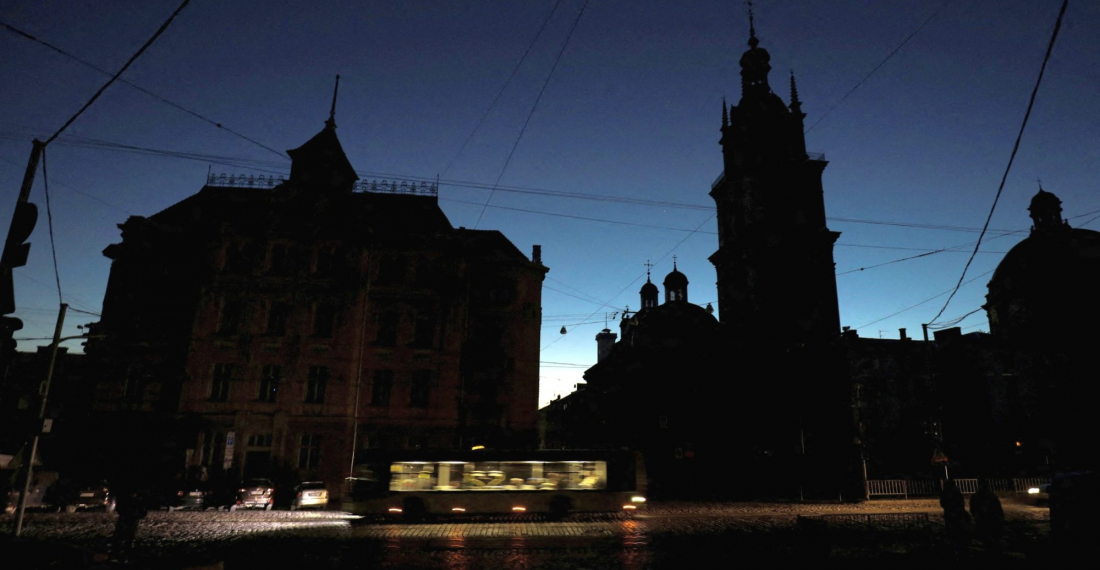Following continued Russian strikes on Ukraine's critical energy infrastructure on Monday (5 December), President Zelensky announced on Tuesday that the country would begin implementing emergency power shutdowns in order to stabilise its power grid.
He added that regions throughout Ukraine would be affected, and that about half of Kyiv region would remain without electricity for the coming days.
The announcement followed the eighth day in as many weeks of extensive Russian missile attacks targeting critical infrastructure across Ukraine. In his late night address, President Zelensky said that 70 Russian missiles had been fired on Monday, adding that "most of them had been shot down". The Russian defence ministry on the other hand claimed that "all 17 of its intended targets" had been hit.
After successive heavy military defeats in the Kharkiv and Kherson regions of Ukraine, Moscow has been apparently deliberately targeting Ukraine's power grid since 10 October. While some Western leaders have called the strategy a war crime due to the enormous damage caused to civilian infrastructure, experts have suggested that the tactic is most likely intended to demoralise the Ukrainian population rather than achieving any military advantage.
In a separate development, both Monday and Tuesday mornings saw suspected Ukrainian drone attacks on Russian military bases far beyond Ukraine's borders. The strikes on military bases in Ryazan and Saratov on Monday targeted long-range bombers that had been used to target Ukraine's power grid. The Russian defence ministry said that two aircraft were damaged and three people were killed.
Then, early on Tuesday morning, reports emerged of a third supposed Ukrainian drone strike, this time on an oil storage tank in the city of Kursk, some 100km from the Ukrainian border. No casualties have been reported.
Ukrainian authorities have continued their policy of not acknowledging responsibility for strikes on targets inside Russia. Instead, when asked about the recent strikes, Ukrainian Defence Minister Oleskiy Reznikov repeated a longstanding joke that any explosions at Russian bases were actually caused by careless cigarette smokers.
"Very often Russians smoke in places where it's forbidden to smoke," he said.
source: commonspace.eu with agencies
photo: Atlantic Council






